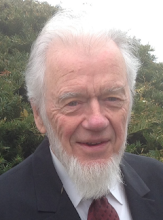In 2008, Dr. Cone was interviewed by Hana R. Alberts, and that interview was posted under the title "A Paradoxical Feeling" on March 24 on www.forbes.com. In the interview Dr. Cone explains his ideas and how they appear in Rev. Wright:
"Black liberation theory emerged out of the ministers: out of Martin Luther King Jr. and Malcolm X in the late 1960s."
"So black liberation theology is an attempt to bring Martin and Malcolm together. The 'black' in black theology stands for Malcolm X. The 'theology' stands for Martin Luther King."
Also, "black liberation theology was an attempt to make the gospel accountable to the black community, who were struggling for a more just society in America.
"What you have in Jeremiah Wright is someone trying to bring together Martin and Malcolm. He's a Christian preacher in a white church, by the way. He is speaking to the hurt in the African-American community. The suffering.
"You know, when King spoke to the black community, he spoke with language very similar to Jeremiah Wright."
"I think Rev. Wright is a perfect example and expression of black liberation theology. He's part of a progressive black ministerial community."

In preparing to send our daughter on a long term youth exchange to Ecuador for a year, we have been doing research on the country. While there are reasons for cautions going anywhere, one worry has been the praise of and invitation for President Robert Mugabe of Zimbabwe to come to Quito as a guest of Anglican Bp. Crespo to receive an honorary doctorate for his achievements in practical liberation theology. To honor a fanatical and murderous despot as a hero of the faith is a serious concern and certainly takes a perceived home church out of the picture. Much like the Anglican/Episcopal divide in our own country, the neighboring diocese of Bolivia is a polar opposite Church of historic, tradition Anglican belief. Hopefully our daughter will be able to land in a more orthodox Catholic or Protestant parish in which the historic Christ is honored.
ReplyDelete